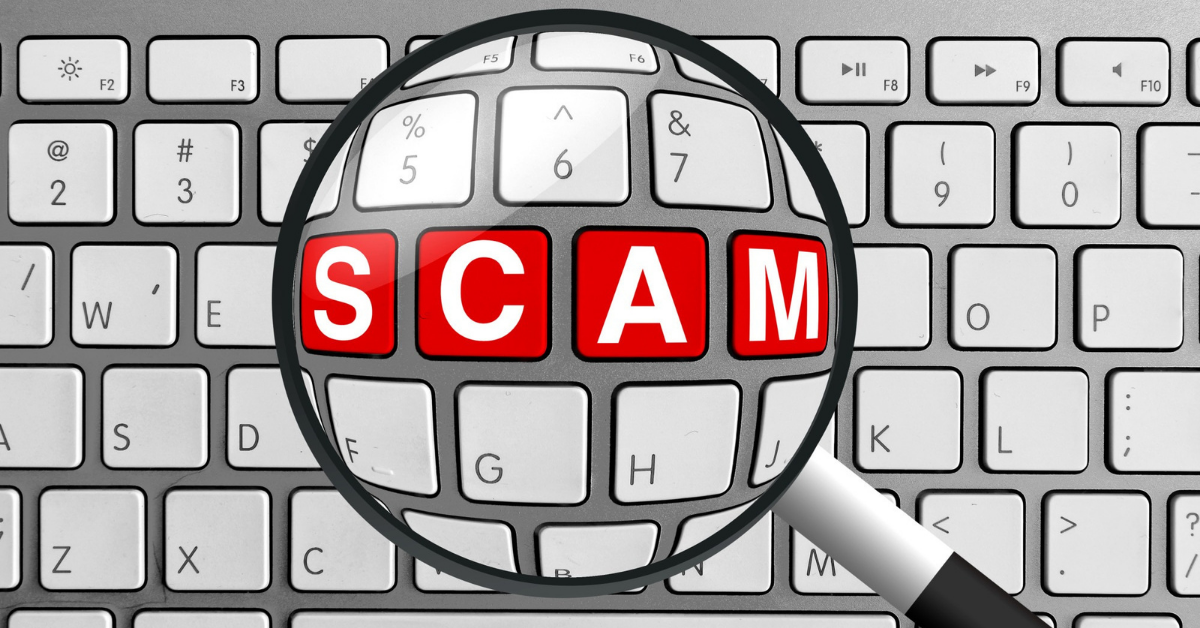How to Protect Your Small Business From Scammers
Submitted by JMB Financial Managers on August 23rd, 2021
Fraud scams take more than 5% of a business' overall revenue. If you're in the process of financial planning for your small business one thing you need to do is protect your business assets.
To protect your assets, you've got to understand the small business scams that could come your way and know how to avoid them. From a PayPal scam email to cyberattacks, we're going to cover it all in this comprehensive guide.
Commonly Used Tactics
When it comes to running a scam there are a series of tactics that scammers use. The first tactic is creating a sense of urgency.
This means the scammer will rush you to decide before time runs out. Because you're being rushed you won't take the time to think logically about what's happening and whether or not it's legit.
Other tactics scammers will use are types of payments that can't be traced. For example, they use things like:
- Gift cards
- Reloadable credit cards
- Wire transfers
All these types of payments are nearly impossible to trace and by the time you've realized you've made a mistake and sent money to the wrong person, it's too late. The scammer has already taken the money and disappeared.
Now that you've got an idea of some of the tactics used by scammers it's essential to understand the types of scams out there.
Order Confirmation Scams
This type of scam usually starts with a phone call. When the scammer calls you, they will be looking for you to confirm an order for supplies and other necessities for your office building.
Once you get off the phone you might even forget the conversation took place, until an order arrives at your office space, and you're being handed an invoice. One thing to note is if you receive supplies you don't recall ordering, or never ordered, you can legally keep them free of charge.
However, the scammer will pressure you to pay for the supplies and could even go as far as to present a copy of your conversation confirming you discussed the order. When you open the supplies, it won't be things you need.
But again, by the time you've realized this, the person you paid will be gone with your money.
Fake Invoice Scam
Several small businesses have been affected by this type of scam, including Shark Tank's own Barbara Corcoran. The bookkeeper for Corcoran received an invoice that seemed as if it came from her assistant confirming a payment to be made to a false company.
The bookkeeper moved forward with making the payment of $400,000 for a real estate renovation only to find out the invoice was fake. Fake invoices aren't uncommon, and one platform scammers model their invoices after are in the form of a PayPal scam email.
The scammer will send an email that resembles an email sent from the business platform, but certain things will allude to it being a scam. The first sign that the invoice is fake is that it's not been sent from an official email. Always check the full email address and, if not sure, go directly to the source, like PayPal, to confirm it’s real before taking action.
Another sign is the invoice will force you to panic (by sounding urgent, saying it’s overdue, or that there is a problem with your account) and make a decision such as logging into your account or reentering banking information.
Cyberattacks
On average a business can lose $200,000 due to cyberattacks. When a cyberattack takes place it tricks someone into offering vital company information such as passcodes to sensitive data or banking information.
Typically, this type of attack starts with a phishing email that persuades someone to click a link or email sensitive information in their email response. Usually, the email will seem to come from someone in a higher position and create fear or urgency for the employee to answer promptly.
Protecting Your Business
There are several things you can do to protect your small business, starting with training your employees. Most of the scams that happen within your business will be sent to your employees.
Therefore, your employees need to be trained to be able to identify a scam and understand what steps need to be taken if they accidentally provide information to a scammer. It's best if all employees undergo routine training because they can become complacent and not remain as observant as they need to be. For example, remind your employees that if they receive an email that looks like it came from their boss or colleague but not from that person’s usual email address, then DO NOT open the email or click on any links.
Another way to protect your business is to always look over invoices before making any payments to the company. While this sounds obvious, it is important to have processes in place to ensure you've received the items or services being invoiced or confirmed that you actually placed the order.
It’s important to have an ample number of records to back up the money flowing in and out of your business. Understanding the people you're doing business with can help as well. Just because a company seems legit to do business with doesn't make them legit. Always take your time to verify the company before making any type of payment.
In addition to your accounting resources, consider hiring a financial manager to help you ensure you're staying on top of your company's finances and financial security.
Financial Planning for Your Small Business
In your financial plan for your business, the last thing you think about is your business being scammed. But, as a business owner, it’s your responsibility to think about these things and how they can affect your company.
Your staff needs to understand how to spot scams and how to respond to them. Your company should also have a specific person, department, or outside resource to help manage its finances and report any suspicious invoices or emails.
We can take charge of these tasks, or coordinate them for you, which will free up more time you can devote to executing your business plan and not worrying about potential scams.
Are you still looking for the right company to help with your financial needs? If so, contact us today for a complementary consultation.
--
About the Author
Jack Brkich III, is the president and founder of JMB Financial Managers. A Certified Financial Planner, Jack is a trusted advisor and resource for business owners, individuals, and families. His advice about wealth creation and preservation techniques have appeared in publications including The Los Angeles Times, NASDAQ, Investopedia, and The Wall Street Journal. To learn more visit https://www.jmbfinmgrs.com/.
is the president and founder of JMB Financial Managers. A Certified Financial Planner, Jack is a trusted advisor and resource for business owners, individuals, and families. His advice about wealth creation and preservation techniques have appeared in publications including The Los Angeles Times, NASDAQ, Investopedia, and The Wall Street Journal. To learn more visit https://www.jmbfinmgrs.com/.
Connect with Jack on LinkedIn or follow him on Twitter.

